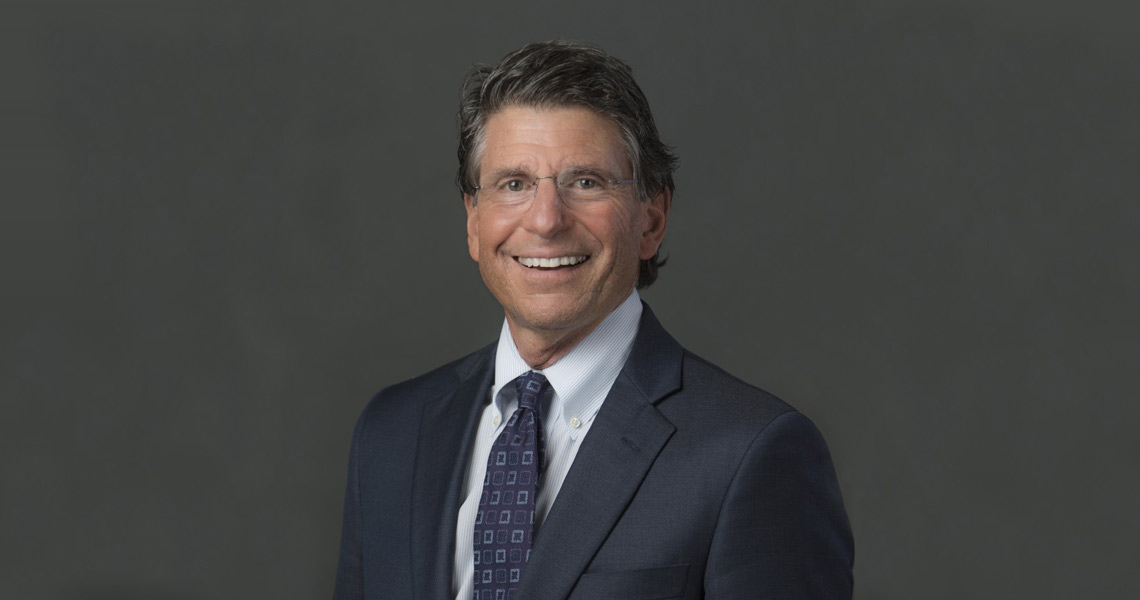Educational Excellence and Innovative Programming

by Ken Randall, Allison and Dorothy Rouse Dean of the Antonin Scalia Law School and GMU Foundation Professor of Law
As I come to the end of my first year as dean of the Scalia Law School at George Mason University, I am continually impressed by the intellect, creativity, and impact that springs from this close-knit legal community in northern Virginia. I was drawn to the law school because of its long-standing tradition of academic excellence and innovation. My efforts have centered around continuing to foster this tradition, producing graduates who are ready for the ever-evolving marketplace, and raising the law school’s profile.
Students truly receive a world-class education at Scalia Law. Our faculty recently ranked in the nation’s Top 25 most impactful faculties. Our seven academic centers—in the areas of law and economics, antitrust, national security, intellectual property, administrative law, free speech, and Middle Eastern law—are borne out of the faculty expertise and are a vibrant part of our academic experience for faculty and students alike—not off-shoots in some remote corner office. The centers elevate and improve the debate on significant national and international issues, from competition policy to technology innovation and preserving American national security, to barriers to tribal self-governance. Judges, practitioners, attorneys general, policy makers, and businesspeople from all over the world attend our center programs, and our students can work for our centers and routinely engage with thought leaders.
In the last year alone, through our centers, students have studied with Supreme Court Justices Kagan and Gorsuch and have listened to Justices Sotomayor and Gorsuch discuss “Civics as a National Security Imperative.” Students have attended lunch and discussions with attorneys general and general counsel of federal regulatory agencies. These opportunities are invaluable.
Scalia Law is equally committed to supporting our students’ practical skills development. Our students receive extensive leadership and professional development training, including, for example, workplace communications, emotional intelligence coaching, and bootcamps on business and leadership skills. Our four-semester legal writing program offers opportunities to develop skills in corporate and regulatory drafting in addition to traditional litigation-based drafting. And we now offer 11 clinical opportunities for students, including in the areas of poverty law, immigration, and free speech.
Our students write briefs for the Supreme Court and represent military veterans in court. This comprehensive programming, combined with our students’ access to hundreds of public and private sector externship opportunities in the greater Washington, D.C., area, amounts to an employment rate of over 94 percent, one of the best in the D.C.- VA-MD market.
Further, to increase educational access for working professionals and international lawyers, this year the law school created two new flex programs: the Part-Time Flex-JD and the Flex-LLM in U.S. Law. The Flex-JD allows our working professional/part-time students to be off campus three nights a week; the Flex-LLM, which launches in the spring, will allow foreign-trained attorneys to obtain an LLM while preparing to sit for the D.C. bar exam. I am pleased to see these new programs are already making a difference. This fall the law school welcomed 259 first-year JD students, a 58 percent enrollment increase over last fall, and the part-time program more than doubled its size. The new class is 23 percent diverse and represent 37 states, Washington, D.C., and five different countries.
As I settle into this new role, I extend an invitation to the lawyers of the Commonwealth to visit Scalia Law, learn more about what we do, and participate in the many interesting programs offered by our centers.